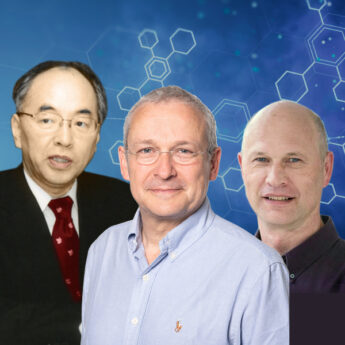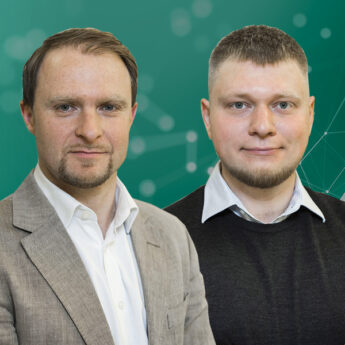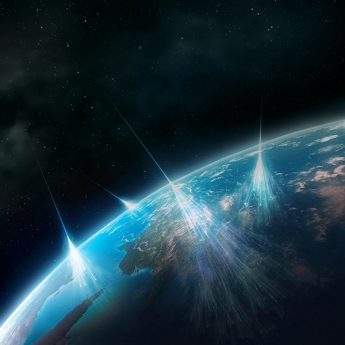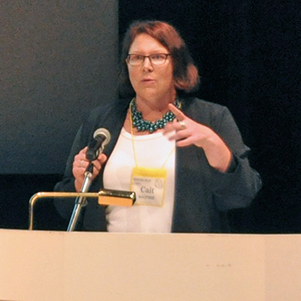British scientist accuses “cranks” of “downplaying danger”
A British scientist is taking issue with the United Nations’ most recent report on the impact of radiation resulting from the disaster at the Fukushima Daiichi Nuclear Power Plant in March 2011, describing the account as little more than propaganda for the global atomic energy industry.
Dr Keith Baverstock, former regional advisor for radiation and public health at the World Health Organization’s Europe office, is deeply concerned about the report released by the United Nations Scientific Committee on the Effects of Atomic Radiation (UNSCEAR).
Speaking at a press conference in Tokyo, Baverstock said the UNSCEAR report cannot be considered a scientific appraisal of the second-worst nuclear accident in history and its aftermath.
Given the importance of full public disclosure regarding a major nuclear incident—and how failing to do so has been shown to destroy public trust, as when the Soviet Union tried to cover up the disaster at Chernobyl in 1986—UNSCEAR had “a special obligation to be timely, transparent, comprehensive, independent and truly scientific”, he said. “My criticism is that it has been none of those things”.
It took UNSCEAR until April 2014 to publish its report, and even now it is incomplete, he claimed, meaning that the authorities have failed to assuage public concerns.
He also pointed out that the report fails to mention the fact that the internationally agreed public health protection framework was not implemented until four days after the Fukushima crisis—on the grounds that the disaster is a political issue.
“Others may regard that attitude as being protective of the interests of other organisations that they might otherwise have to criticise”, Baverstock said.
However, without the initiation of the radiation risk assessment protocols, it became difficult to determine the doses of radiation that were released in the early hours of the accident, the route of the plumes of radioactivity, as well as the locations and number of people they affected.
The report fails the autonomy test, as it is not “independent of those who might have a vested interest in the outcome”, Baverstock said. Rather, its members are “overwhelmingly” nominated by national governments that have nuclear power programmes of significant economic importance. Those same governments also fund the agency.
He also said the CVs of the members who produced the report should have been made public. The visible information should include their experience in the field of nuclear risk assessment, as well as details of any potential conflict of interest.
It is significant, Baverstock contended, that the agency chose to use statistics on the amount of radioactivity from different isotopes released from the three stricken reactors at Fukushima Daiichi over a period of one week. These statistics were provided by the Japan Atomic Energy Agency (JAEA).
It is no coincidence, he added, that of the several estimates UNSCEAR selected, the JAEA figures were by far the lowest. For example, the Japanese estimate of the amount of Caesium-137 that had been released into the atmosphere was one-sixth the amount that had been estimated by another group.
“The report has many features that can be interpreted as downplaying the importance of the accident from a public health perspective”, he said. He used the example of an UNSCEAR press release that was headlined “Increase in cancer unlikely following Fukushima exposure, says UN report”.
Despite the headline, he pointed out, the release goes on to state that there are likely to be 50 additional cases of cancer among the 10,000 staff who worked at the site during the crisis and took part in the containment efforts over the subsequent 18 months. For the rest of the people living in Japan, the exposure could result in 2,500–3,800 additional cases of cancer during their lifetimes.
“This is on the basis of our best knowledge of the risk of exposure to radiation”, Baverstock said. “These are not unlikely cancers, but cancers that are to be expected. They may never be identified in specific individuals as Fukushima-caused cancers—but they will occur”.
Baverstock was also highly critical of commentators who have dismissed the impact of low doses of radiation on the grounds that the human body has adapted over millennia to the naturally occurring radiation that is already in the environment around us.
Literature that fails to take into account the impact of radiation on biology, and ignores epidemiological studies is “dangerous” and the work of “cranks”, he added.






